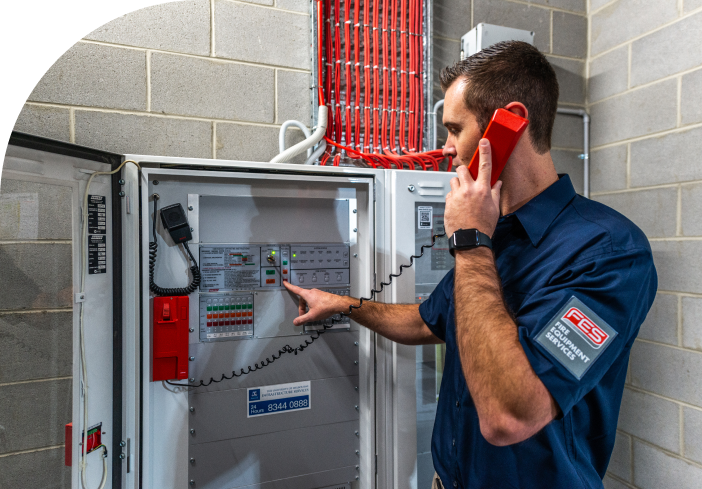Sprinkler Systems
An active fire system that provides a water deluge in the area of emergency when a certain temperature is reached.
Read MoreSpecial Hazard Systems are required when fire suppression systems that use standard liquid agents would not be appropriate. One situation that might require a specialised hazard control system would be when the room contained equipment that would be damaged by a standard sprinkler system. These active fire systems also may be required in locations where it isn’t possible to install, store or connect the liquid/plumbing required for deluge or sprinkler systems.
Special Hazard systems may also be appropriate where the likely type of fire that could occur would be escalated by using liquid suppression systems, such as oil fires.
First step with Special Hazard Systems is identifying when one is needed. The decision to install alternate suppression starts at design.
These systems need to be calibrated to work effectively so ensure they are installed by experienced professionals.
Whether self-contained or looped into the wider safety systems make sure that your Special Hazard Systems are looped in and that your personnel are trained with their operation.

Not every fire is the same, while water may be the most effective extinguishing method for some, Special Hazard Systems are the go for others. Being able to identify the types of fire you might encounter will help you choose what systems to install in your building. The difference in the type of fire often comes down to what the main fuel of the fire is.
For wood, paper or plastic fire, extinguishing poses limited additional risk outside of the risk of the fire itself. A standard water extinguisher, hose or sprinkler system is appropriate here.
Avoid liquid or wet extinguishing tools for extinguishing flammable liquids. These may spread the flammable liquid across a larger space thereby growing the fire and present danger. Some flammables also combust when water is added while already burning. Fire blankets are also ineffective against flammable liquid burns. Foam or powder-based extinguishing agents are your best choices here.
Wet extinguishing agents and fire blankets are again ineffective against flammable gas fires. Use powder-based extinguishing agents to ensure safe extinguishing.
Liquid and foam extinguishers can cause further combustion or electrical failures when attempting to extinguish electrical fires. Powder or gas based extinguishing agents work best when combatting electrical fires.
Many oils and fats actually increase in flammability when water is added to them. Never extinguish a kitchen fire with a water-based extinguishing agent. Some powder-based agents, vaporising extinguishers and fire blankets are best used for smothering oil and fat fires.